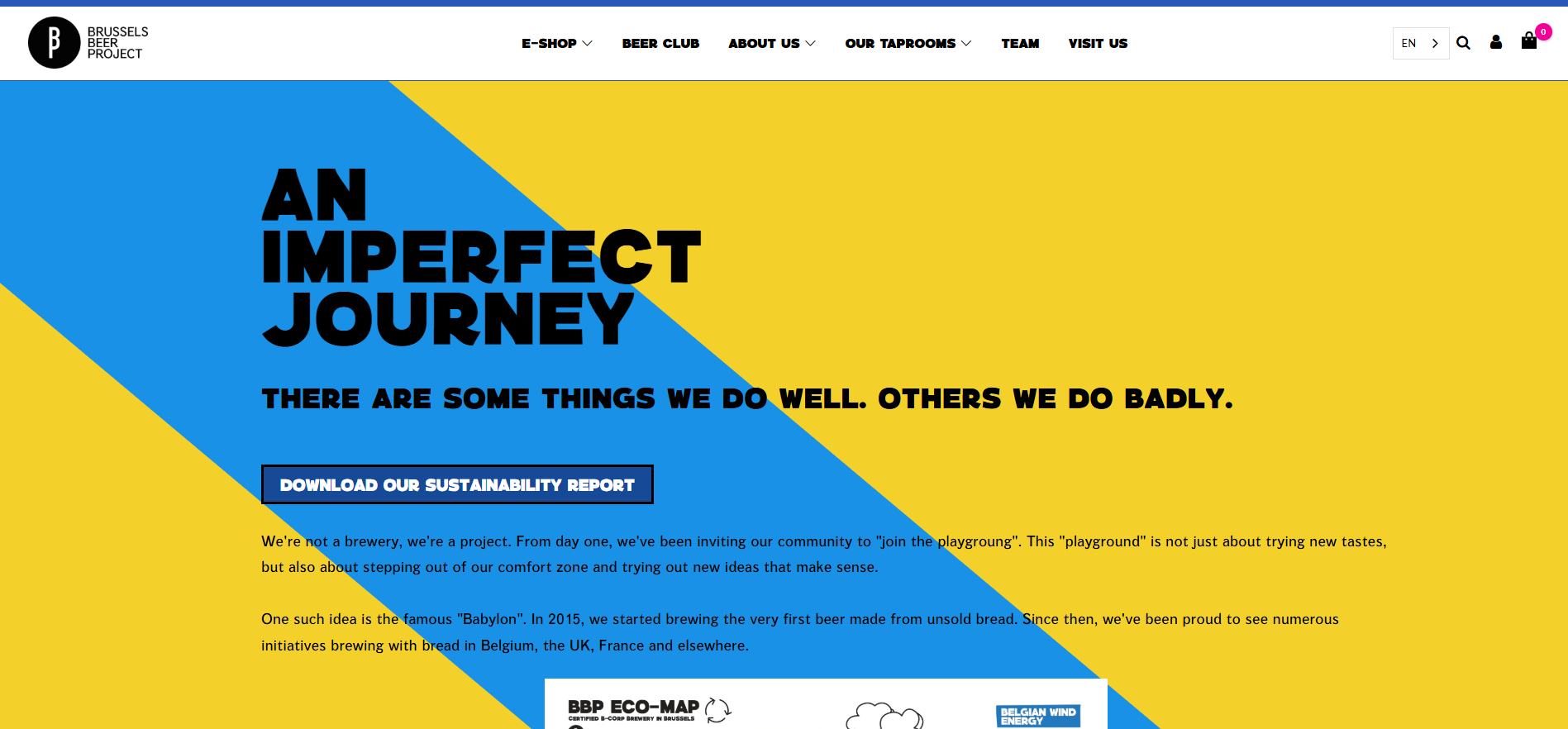Brussels Beer Project: Brewing a Sustainable Future
Brussels Beer Project is not just a brewery; it’s a movement towards sustainability and community engagement. Founded in 2013, this innovative project has been brewing craft beers while keeping a strong focus on environmental responsibility and social impact. With a unique approach to brewing, they are redefining what it means to enjoy a beer. From using unsold bread to create delicious brews to engaging the community in the brewing process, Brussels Beer Project is a shining example of how businesses can operate sustainably.
- Craft beers delivered to your doorstep.
- Focus on circular economy and waste reduction.
- Community-driven brewing process.
- Use of local ingredients from independent suppliers.
- Commitment to reducing carbon footprint.
Community Engagement: Brewing Together
At the heart of Brussels Beer Project is its community. The founders, Olivier and Sébastien, started with a vision to create a brewery that involved the people. They invited locals to participate in the brewing process, allowing them to vote on new beer recipes. This collaborative spirit has led to the creation of unique beers that reflect the tastes and preferences of the community. The brewery has grown from 369 crowdfunders to over 5500 supporters, all of whom play a vital role in shaping the future of the project.
Innovative Brewing: From Waste to Taste
One of the standout initiatives of Brussels Beer Project is its commitment to the circular economy. In 2015, they brewed the world’s first beer made from unsold bread, a groundbreaking move that has inspired many others in the industry. This innovative approach not only reduces food waste but also creates delicious beers that are full of flavor. The brewery continues to experiment with other waste products, such as broken cookies and local fruits, to create unique brews that tell a story of sustainability.
Local Sourcing: Supporting the Community
Brussels Beer Project prioritizes local sourcing for its ingredients. They work closely with independent suppliers, mainly from top Belgian malting companies, to ensure that their beers are made from high-quality, locally sourced materials. This practice not only supports the local economy but also reduces the carbon footprint associated with transportation. By fostering long-term partnerships with local farmers and manufacturers, they are setting an example for other businesses to follow.
Environmental Responsibility: Reducing the Footprint
Brussels Beer Project is committed to reducing its environmental impact. They have implemented measures to track and reduce their carbon footprint by 10% each year. This includes focusing on energy consumption, production processes, and sourcing local raw materials. Their new brewery in Anderlecht produces enough solar energy to meet its electrical needs, showcasing their dedication to clean energy. The brewery also recycles tons of bread each year, closing the loop in their production process.
Celebrating Craft Beer: A Sustainable Future
Brussels Beer Project is not just about brewing beer; it’s about creating a sustainable future. They celebrate craft beer as a means to bring people together while promoting responsible practices. Their taprooms serve as community hubs where people can enjoy unique beers and learn about the brewing process. By hosting events and workshops, they engage the community in discussions about sustainability and the importance of supporting local businesses. This commitment to education and community involvement is what sets them apart in the craft beer industry.
United Nations Sustainable Development Goals
- Goal 2: Zero Hunger – Reducing food waste through innovative brewing.
- Goal 8: Decent Work and Economic Growth – Supporting local suppliers and creating jobs.
- Goal 12: Responsible Consumption and Production – Promoting sustainable practices in brewing.
- Goal 13: Climate Action – Committing to reduce carbon footprint.
- Goal 17: Partnerships for the Goals – Collaborating with the community and local businesses.
Brussels Beer Project is a great example of how a business can thrive while making a positive impact on the environment and community. To learn more about their sustainable initiatives and craft beers, visit Brussels Beer Project.


















